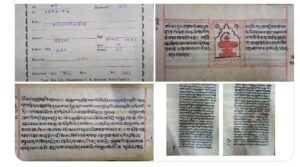New Delhi, 01 July: Three new laws, Indian Justice Code, Indian Civil Protection Code and Indian Evidence Act, have come into force in the country in place of IPC, CrPC and Indian Evidence Act.
In the three new laws, from the FIR to the verdict has been bound by time limit to ensure speedy justice. Not only this, timelines have been added at 35 places in the new law to speed up the criminal trial.
On receiving the complaint, the time limit is fixed for filing the FIR, completing the investigation, taking cognizance by the court, filing documents and giving the verdict after the completion of the trial. Along with this, the way for quick settlement of cases has been made easy by making full use of modern technology and making electronic evidence a part of the law.
The speed of justice will be accelerated by the use of electronic means in the process of complaint, summons and testimony. Now FIR in three days The new law ensures that FIR is registered within the time limit and it is sent to the court. There is a provision in the Indian Civil Security Code (BNSS) that FIR has to be registered within three days on receiving a complaint. In cases of punishment of three to seven years, the preliminary investigation will be completed in 14 days and FIR will be registered. After the search report is prepared in 24 hours, it will be presented before the court.
Timeline for chargesheet also fixed In rape cases, the medical report of the victim will be sent to the police station and court within seven days. Earlier, there was no time limit for this in the CrPC. After the new law comes, the first reduction in time will be from here. The timeline for chargesheet is also fixed in the new law. As before, there is a time of 60 and 90 days for filing a chargesheet, but after 90 days, permission has to be taken from the court to continue the investigation and the investigation cannot be kept pending for more than 180 days.
The chargesheet has to be filed within 180 days. In such a situation, the chargesheet cannot be kept pending indefinitely in the name of ongoing investigation. Time limit for the court has also been fixed. The magistrate will take cognizance of the case within 14 days. Many measures have been taken to ensure that the case comes to trial within 120 days at the most. The time for plea bargaining is also fixed. The new law on plea bargaining says that if the accused accepts the crime within 30 days of framing of charges, the punishment will be less. After the completion of the trial, the court will have to pronounce the verdict within 30 days. Till now there was no time limit for plea bargaining in CrPC.
In the new law, there is also a talk of completing the process of documents in the case within 30 days. There is also a time limit for giving the verdict. After the trial is over, the court has to give the verdict within 30 days. There is also a time limit for mercy petition
On filing written reasons, the duration of the decision can be up to 45 days but not more than that. The new law also sets a time limit for mercy petition. The mercy petition will have to be filed within 30 days of the rejection of the appeal from the Supreme Court.
This is the new law
– For the first time, terrorism has been defined.
– Sedition has been made a crime instead of sedition.
– Life imprisonment or death sentence in mob lynching cell.
– Victims will be able to register FIR anywhere.
– The state does not have the right to withdraw the case unilaterally.
– FIR, case diary, charge sheet, judgment will be digital. –
Audio-video recording is mandatory in search and seizure. –
Option for the witness to record the statement through audio-video. – It
is mandatory to collect forensic evidence in crimes punishable with seven years or more.
– Provision of summary trial (settlement in a short process) for quick settlement of minor crimes.
– Bail will be granted to the first-time offender after serving one-third of the sentence during the trial.
– Property of fugitive criminals will be confiscated.
– Electronic digital records will be considered as evidence.
-The trial will continue even in the absence of fugitive criminals.
Big change
– Indian Penal Code (IPC) 1860 has been replaced by Indian Justice Code 2023. –
Criminal Procedure Code (CrPC) 1973 has been replaced by Indian Civil Protection Code 2023.
– Indian Evidence Act 1872 has now been replaced by Indian Evidence Act 2023.





